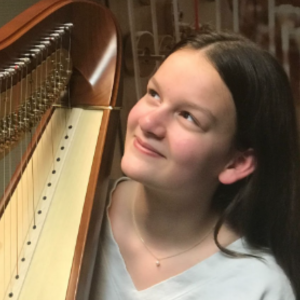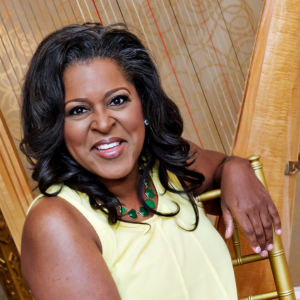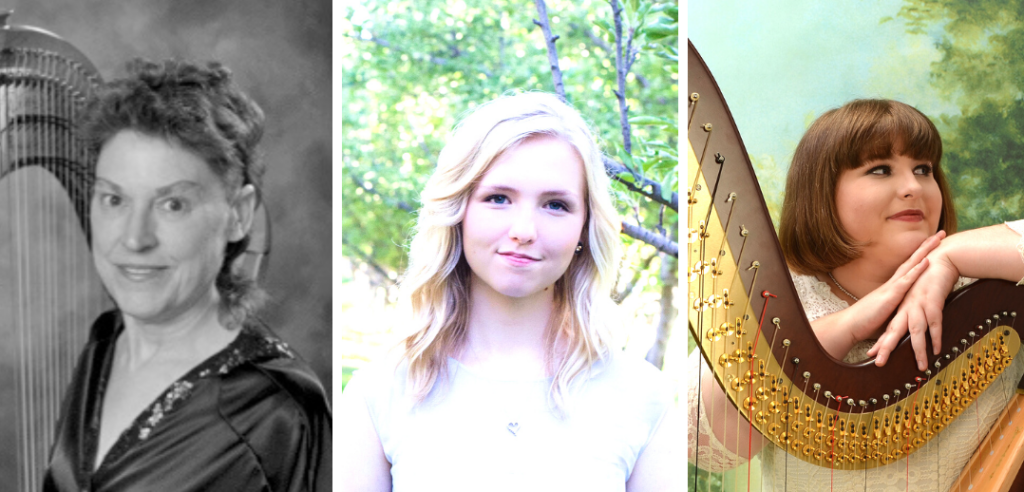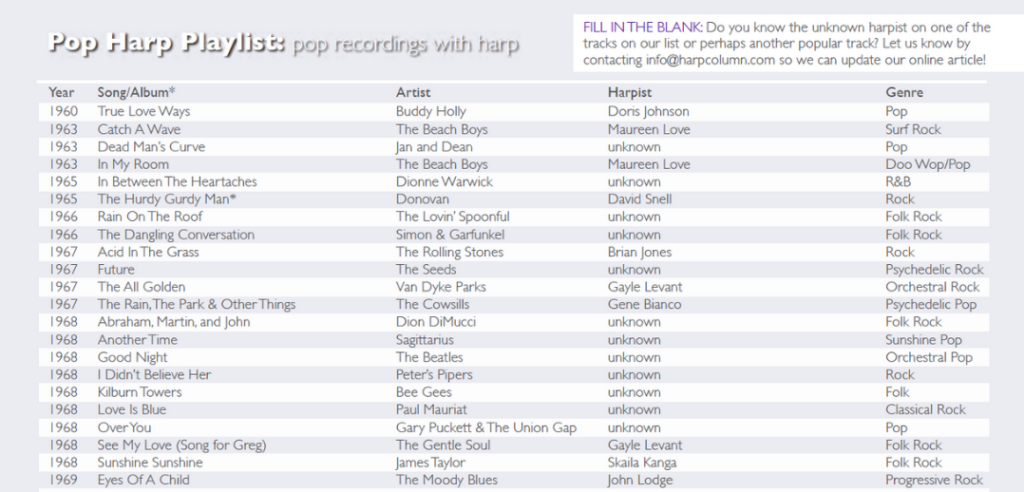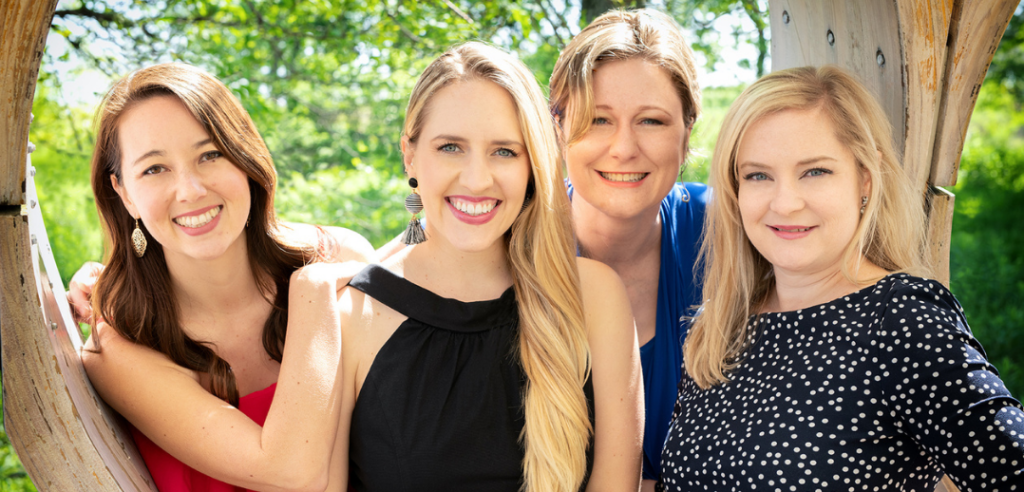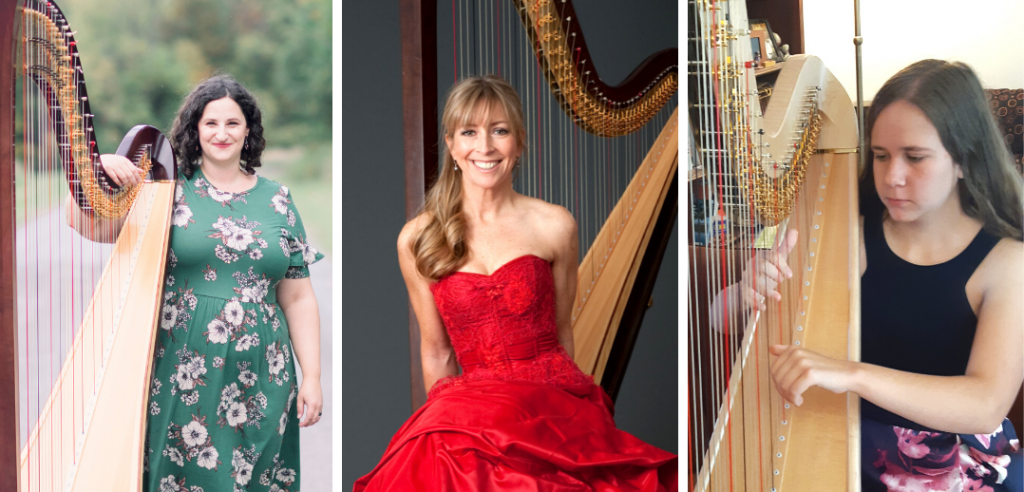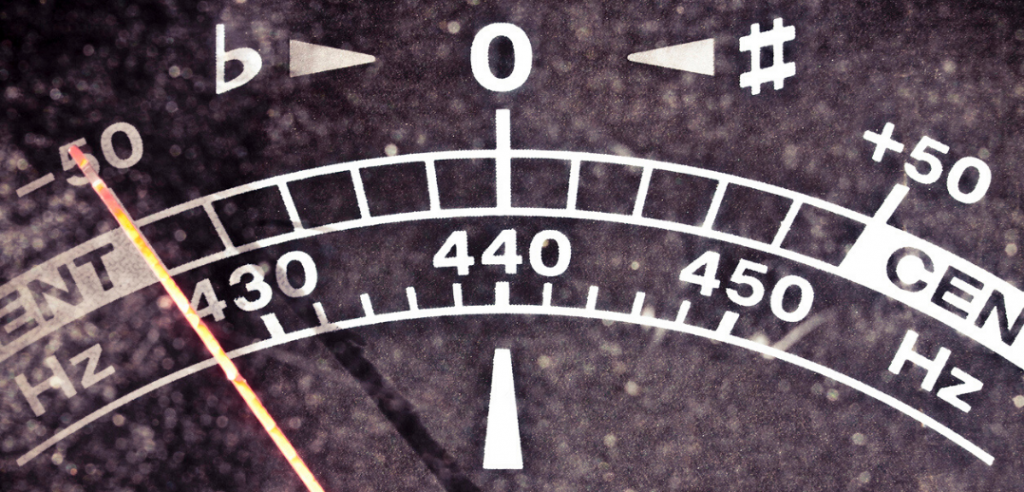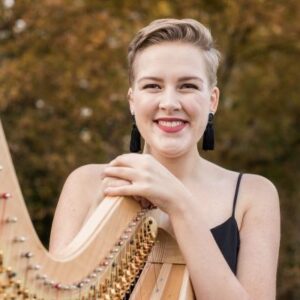Ed.—this article extra is part of the feature article Listen Up in the March-April 2019 issue of Harp Column.
I have been a harpist for longer than I have been just about anything else. I earned three performance degrees and taught for a while, always yearning to be in and around academia. I used to say, frequently, that if I wanted to go back to school for another degree I would have to pick a new field and start over. It turns out that this was a self-fulfilling prophecy. After years of tiny piques of interest, some interesting anecdotes from friends and colleagues along the way, and finally some deeper digging after babies number two and three were born (on the same day, definitively changing my family and my family’s needs), I finally made the plunge and went back to school for my doctorate in audiology (Au.D.) at the University of Louisville School of Medicine.
What is Audiology? Well, it is the study of hearing. More specifically, it is the science of hearing and balance and treating and diagnosing their associated disorders in a clinical setting. I stumbled across a blog in 2015 that talked about the huge disconnect between music and audiology—ironic, since both groups value and deal with many of the same things, just with different terminology. It discussed the gap that exists: audiologists think musicians make terrible patients because they think they know better how things should sound, and musicians think that audiologists don’t or can’t understand how important the nuances of sound are to them. I thought I did (or could) understand both those things, so I decided to try to bridge a gap with my admittedly unusual background and experience. And now here I am, on track to graduate in 2020 with the hopes of helping musicians understand, preserve, and protect their hearing, and when necessary, treat their hearing loss with a deep, personal understanding. Towards this end, I want to share some things about hearing and music that I have learned, and wish I had known all along.








